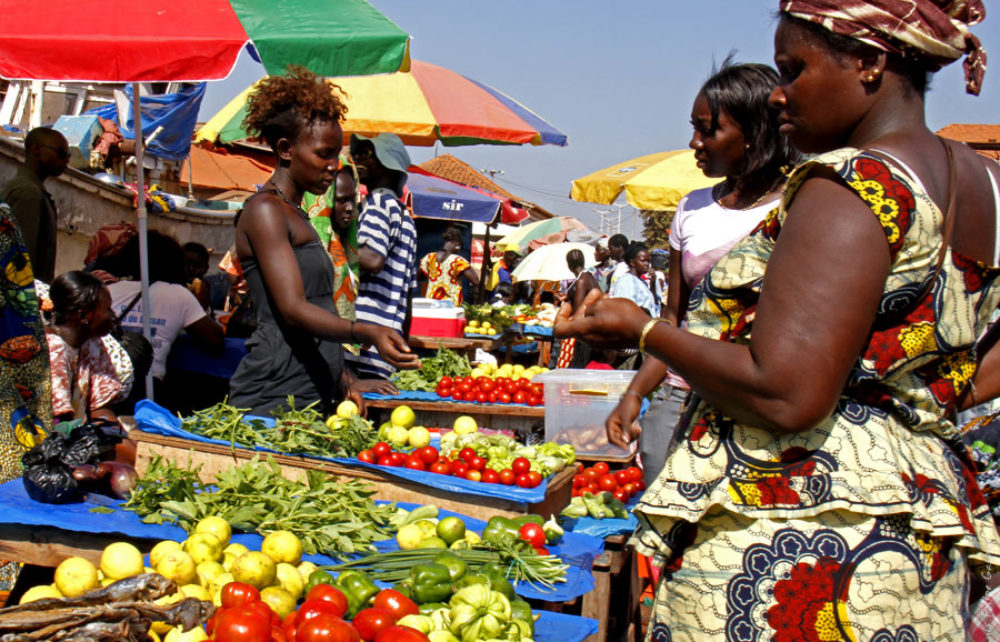The covid-19 pandemic has disrupted economic activity and public finances in Guinea-Bissau and the country is expected to need an International Monetary Fund (IMF) program soon.
In its latest report on Guinea-Bissau, the IMF says GDP is projected to contract by 2.4 percent in 2020, compared to 4.9 percent growth in the pre-shock scenario, owing to the containment and lockdown measures imposed by the State of Emergency declared on March 28, followed by the State of Calamity declared on September 9, that “deeply weighed on employment, consumption and investment”.
“Border closures and limited circulation delayed the launch of the 2020 cashew campaign, severely impacting the agriculture sector, which employs 70 percent of the labor force. Severe floodings also disrupted economic activity”, the Fund says.
Despite the authorities’ efforts to contain the spread of the disease, it adds, the number of covid-19 cases “has rapidly increased and the short-term economic outlook has sharply deteriorated owing to the adverse global economic conditions, the decline in the demand for cashew nuts, and the impact of domestic containment measures aggravated by recent severe floods”.
IMF staff approved this month a USD 20.47 million emergency support requested by Guinea-Bissau, after extensive discussions with the country´s Government.
Measures needed to address the pandemic and the associated external shocks have increased fiscal and external financing needs, and staff estimates the external and the fiscal financing gaps at around 5.0-4.5 percent of GDP.
The IMF´s “confidence on the authorities’ commitment to implementation of sound policies” is “underpinned by strong multilateral donor engagement, including their intention to request an SMP (Staff Monitored Program) and, based on a satisfactory track record, an ECF (Extended Credit Facility) arrangement to support the recovery from the pandemic and implement needed structural reforms”.
Guinea-Bissau’s risk of external debt distress is now considered high, a downgrade from the moderate rating in May 2018, with debt indicators having “significantly worsened on the back of higher than expected fiscal deficits, increased borrowing for investment projects, and the additional financing required to address the impact of the pandemic”.
According to the Fund, the international community “is expected to support the country to closing the projected BOP gap (Balance of Payments) by covering about 25 percent of the projected shortfall.
“Other multilateral organizations and bilateral donors are expected to step-in along with IMF support. These would reduce the need for expensive regional financing or off-set projected loss in reserves”, the report adds.
The Fund´s outlook is based on the pandemic subsiding globally and locally by mid-2021, and on the external front risks include an “unexpected downside shift in the pandemic causing a weaker than projected recovery of international cashew nut prices – hampering economic recovery and further reducing government revenues, and spillovers from regional measures to contain the pandemic, such as shortages and price increases generated by restrictions on the movement of food and basic goods across countries, and limited movement of seasonal workers due to border closures”.
“On the domestic side risks include financial stress in state-owned enterprises and banking fragilities, arising from high NPLs (non performing loans) and banks’ undercapitalization, which could generate contingent liabilities adding to fiscal pressures. Social tensions may erupt from high unemployment and higher incidence of poverty in the absence of adequate social safety nets, generating renewed political uncertainties”, the IMF adds.
In a letter to the IMF managing director, Guinea-Bissau minister of Finance, João Fadia, says the country´s ability to effectively respond to the crisis “is severely limited by the drop in international demand for cashew nuts, the domestic containment measures and the long-standing capacity constraints of our public sector”.
“Against depressed tax revenue and tight cash availability, spending will need to increase—reflecting the unanticipated health-related expenditure, the need to provide food assistance, alleviate liquidity constraints in the economy through clearance of domestic arrears, and support the cashew nut sector. In particular, to strengthen the health system”, he adds.




